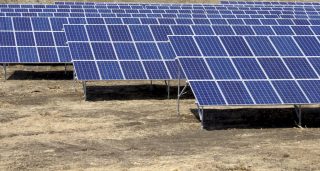The French Development Agency, France’s main machinery for foreign policy, is providing Tunisia with a $131.7 million loan for their ambitious smart electrification project. The Tunisian parliament approved the loan request this week, with the government expected to repay it within twenty years.
This is the latest in a series of coordinated government spending on a refocused metering system as well as transitioning to renewable energy. The smart grid was first announced two years ago by the Tunisian Company of Electricity and Gas (STEG), with a plan to connect the whole country by 2023. But it didn’t take off as early as hoped, delayed by unavailable funds. The smart grid will increase efficiency in power management, improve electric bill payments, decrease electricity theft and foster a competitive sector.
One of the smart grid’s benefits is the greater accuracy in estimating and charging electricity consumption. This will improve the integrity of power suppliers while keeping consumers honest, ensuring an altogether trustful exchange between both ends of the electricity chain. STEG reportedly intends to implement the project’s first phase using this loan. The first phase involves setting up of control and communication stations as well as the installation of about 430,000 “intelligent” meters in the Sfax governorate, home to about 330,000 people.
STEG’s efficiency has been plagued by debts, reportedly reaching $329 million since 2011. The company has had a hard time compelling power consumers, including government departments and institutions, to pay their bills. STEG CEO Moncef Harrabi, earlier this year, warned that “the current situation of the company” has forced it “to take immediate action to reduce the worsening of the crisis and stop the financial bleeding caused by losses.”
According to North East Group, a Washington, DC think-tank with expertise in smart infrastructure and smart grid sectors, Africa’s prepaid metering market penetration is just above forty percent. This is despite the continent being the world’s fastest-growing metering market and housing some of the most reluctant electricity bill payers. It is estimated that African utilities will spend $8 billion on electricity metering by 2026.
North East Group highlighted this among other statistics in its 2016 report “Sub-Saharan Africa Electricity Metering: Market Forecast 2016-2026.” Ben Gardner, president of North East Group, said at the time, “Nearly one-third of the power produced in Africa is never properly billed to customers. This means utilities do not generate sufficient revenue to maintain their networks and fund necessary expansion. Utilities in Sub-Saharan Africa must urgently upgrade their poor metering structure.”
The smart grid project will also further the national goal of getting thirty percent of the nation’s electricity from renewable sources by 2025. By installing conventional energy capacity of about 2000 MW and renewable energy of up to 1300 MW, Tunisia hopes that by 2023, it will have brought its national capacity to about 8300 MW.
By Caleb Ajinomoh








